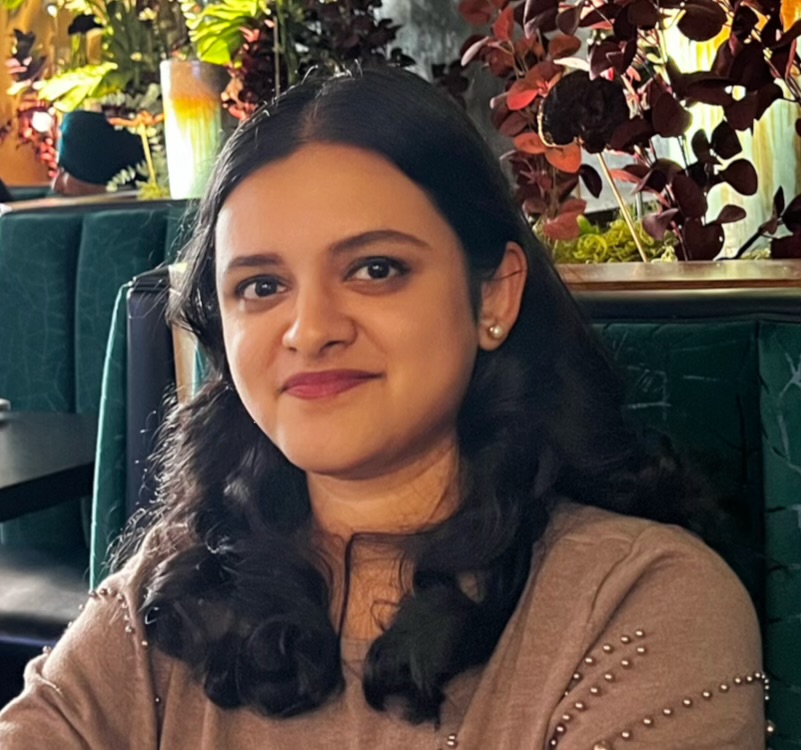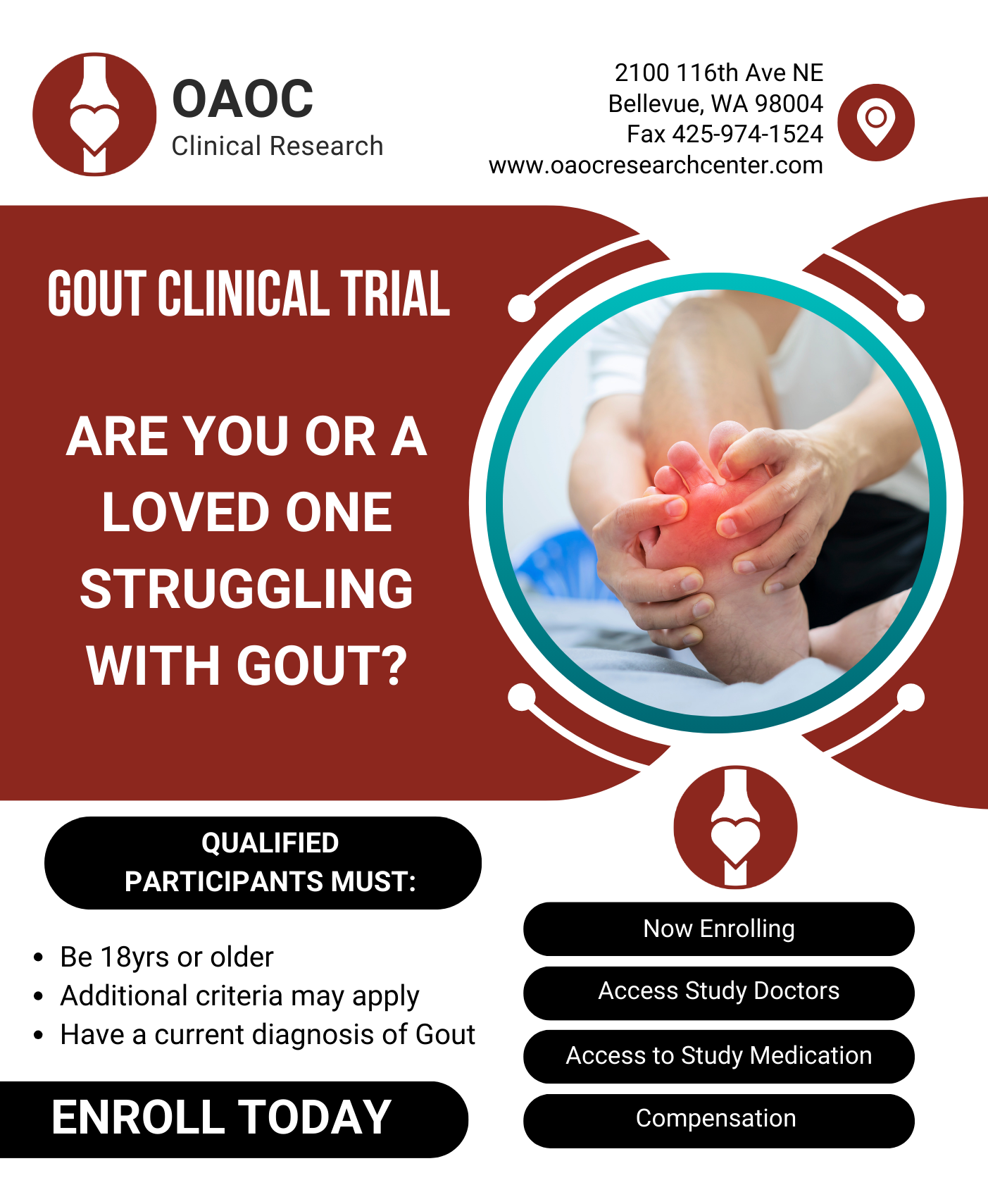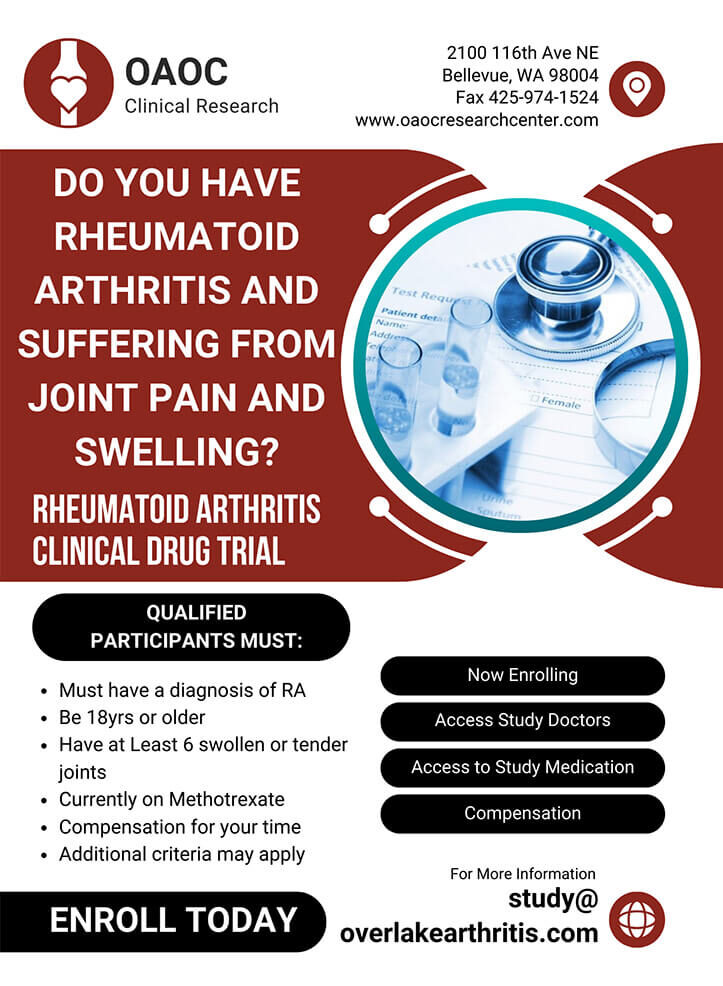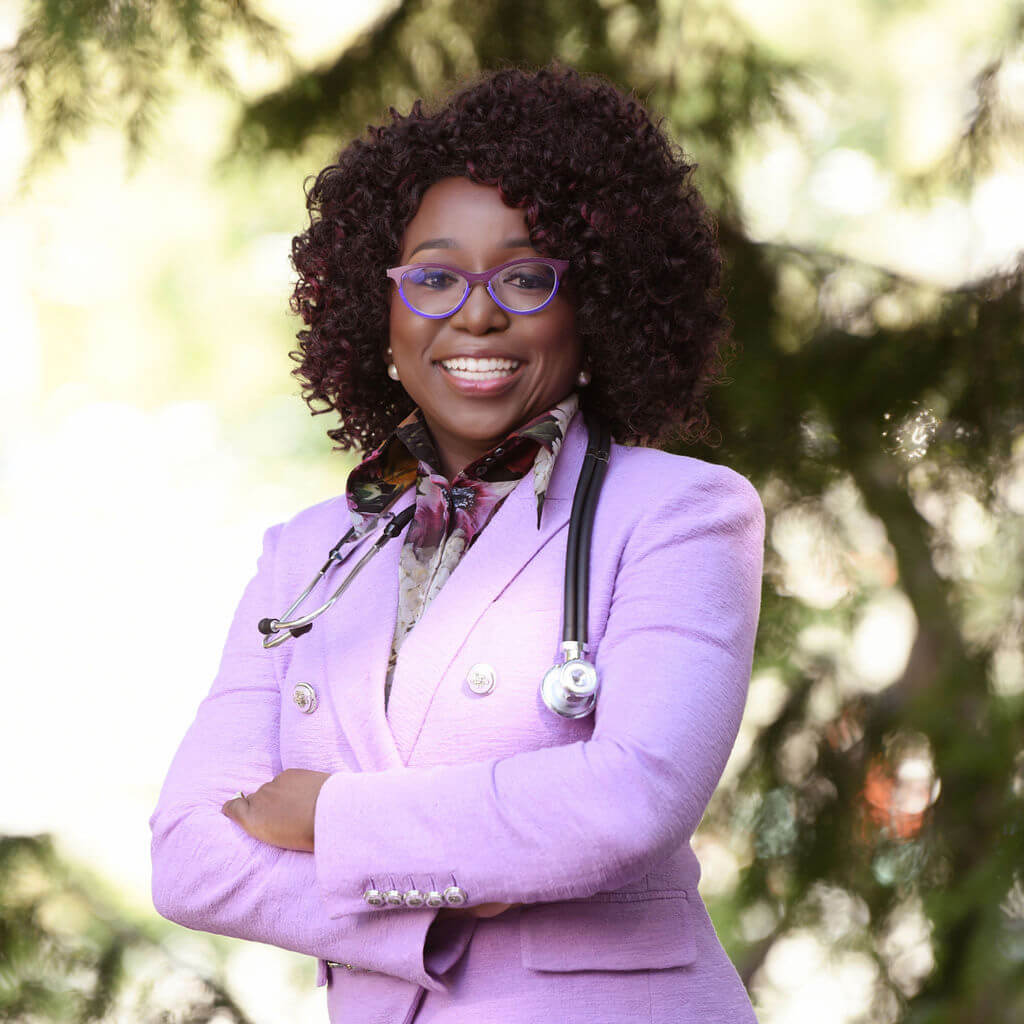Research Studies
Welcome to OAOC Research Center, located in the vibrant city of Bellevue, Washington. As a leading research study site, we are dedicated to advancing scientific knowledge and improving healthcare outcomes through cutting-edge research. Our team of experienced professionals is committed to conducting high-quality clinical trials in collaboration with pharmaceutical companies, academic institutions, and government agencies. At OAOC Research Center, we strive to make a meaningful impact on the future of medicine and are proud to be at the forefront of innovative research in our community.
Access to Cutting-Edge Treatments
Clinical trials may provide access to innovative treatments and therapies that are not yet available to the general public, offering participants the opportunity to receive advanced care for their medical condition.
Contribution to Medical Advancements
Clinical trials may provide access to innovative treatments and therapies that are not yet available to the general public, offering participants the opportunity to receive advanced care for their medical condition.
Comprehensive Medical Care
Participants in clinical trials often receive close medical supervision and monitoring, including regular check-ups and assessments, which can contribute to an enhanced level of care and attention to their health needs.
Potential Health Benefits
Some participants in clinical trials may experience positive health outcomes from the treatments being studied, potentially leading to improved health and well-being.
Personal Empowerment
Participating in a clinical trial can provide individuals with a sense of empowerment and contribution to the greater good, as they play an active role in advancing medical knowledge and potentially improving the standard of care for others with similar conditions.
It’s important to carefully consider the potential risks and benefits of participating in a clinical trial and to discuss any questions or concerns with healthcare providers before making a decision.
Our OAOC research team, led by prominent rhematologists and medical professionals, is dedicated to pioneering innovative clinical research. OAOC remains a trusted hub for advancing patient care.
Dr. Arinola Dada
Dr. Arinola Dada is a highly accomplished rheumatologist with a diverse background and a deep commitment to patient care and research. She earned her undergraduate and MD degrees from the University of Lagos, Nigeria, completing her Internal Medicine residency at the Mercy Hospital of Pittsburgh (now University of Pittsburgh) and subsequently pursuing a Fellowship in rheumatology at the University of Washington, Seattle. With over two decades of experience as a practicing rheumatologist since 2001, Dr. Dada holds board certifications in Rheumatology and Clinical Densitometry.
Dr. Dada is leading Overlake Arthritis and Osteoporosis Center (OAOC) in bringing clinical research opportunities to patients in the Seattle area, contributing to the advancement of medical knowledge and treatment options.
Dr. Deepa Gali
Dr. Deepa Gali is an accomplished Rheumatologist and has a passion for treating autoimmune diseases and inflammatory arthritis. Dr. Gali received her MBBS (Bachelor of Medicine and Bachelor of Surgery) in India. She completed Internal Medicine/Pediatric residency at Louisiana state University and her Rheumatology fellowship at Wayne State University/Henry Ford Medical Center.
She has been practicing as a Rheumatologist in Washington for the past 7 years. She is known for her expertise in chronic, severe rheumatological conditions.
She has a special interest in treating Psoriatic Arthritis, Rheumatoid Arthritis, Ankylosing Spondylitis and Gout.

Varsha Sridhar
Clinical Research Manager
Varsha, a General Physician from Southern India, began her medical journey at Rajarajeswari Medical College and Hospital in Bengaluru. After serving as a research physician and emergency medicine junior resident in Bengaluru, she moved to Seattle, USA. There, she earned her Master’s in Public Health from the University of Washington. Her expertise spans diagnosing and treating various acute and chronic ailments, proficiency in laboratory work and radio diagnosis, and 2-3 years dedicated to clinical trials in neuro-psychological disorders, metabolic disorders, and rheumatological conditions. Beyond medicine, Varsha demonstrates a solid background in managing healthcare.
Participants in clinical studies are protected by ethical and legal guidelines that prioritize their safety and well-being. Institutional review boards (IRBs) and regulatory authorities oversee the conduct of clinical studies to ensure that ethical and safety standards are met.
Individuals interested in participating in a clinical study can search for relevant studies on clinical trial registries, consult with healthcare providers, or contact research centers and academic institutions conducting clinical research.
The duration of a clinical study varies depending on its objectives and design. Some studies may last for a few months, while others can span several years.
Potential benefits of participating in a clinical study include gaining access to new treatments, contributing to medical research, and receiving expert medical care. Risks may include side effects from the treatment being studied and the possibility of receiving a placebo instead of an active intervention.
During a clinical study, participants may undergo medical assessments, receive study treatments or placebos, and provide data through interviews, surveys, or medical tests. The specific activities will depend on the nature of the study.
A clinical study is a research study that investigates the safety and effectiveness of medical treatments, interventions, or devices in human participants. These studies are essential for advancing medical knowledge and improving patient care.
The eligibility criteria for clinical studies vary depending on the specific research question being addressed. Participants may be selected based on factors such as age, gender, medical history, and the specific condition being studied.
Clinical studies are crucial for developing new treatments, improving existing therapies, and understanding diseases. They help determine the safety and efficacy of medical interventions before they are made available to the public.







